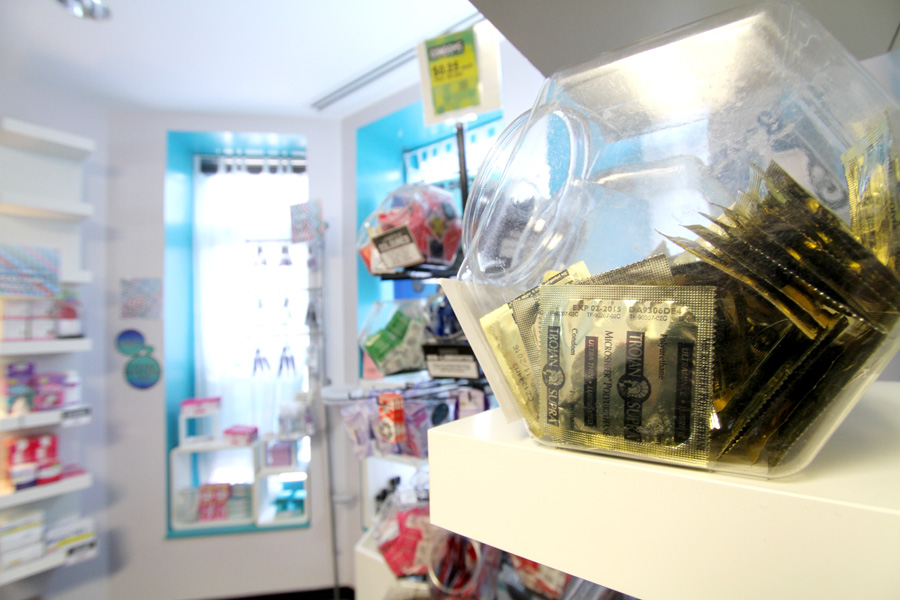McGill’s Shag Shop is looking to move into a physical space again as renovations of Student Services in the Brown Building are expected to begin in February 2017. Since 2005, the Shag Shop, a safe sex and health store, has been offering products ranging from contraceptives to vibrators and toys at low prices. After closing its storefront in 2014, the Shag Shop has maintained an exclusively online store that allows students to purchase online and pick up orders on campus.
According to interim Senior Director of Student Services Cara Piperni, Student Health Services hopes the Shag Shop will regain a physical space in Fall 2017 once renovations are completed.
“The ideal state is to have a physical space as well as to have an online store,” Piperni said. “We’re hoping to carve out a small space for the Shag Shop to live again. This is not a commitment, but it’s on our list of things that we would like to address [….] Within 18 months, we’ll know whether that’s something we can do or not.”
Piperni explained that the Shag Shop’s first and foremost purpose is to be a health-education resource for students.
“The goal of the Shag Shop has never been to make a profit,” Piperni said. “It’s really been about creating awareness and providing products at a very low cost. So, there’s no impediment for students’ accessing these supplies. Doing kits for parties is one way just to create awareness that we’re here, peer health educators are here, [and] supplies are here and easy to get in a confidential manner. So, it’s all just part of promoting good sexual health.”
Despite the lack of a physical shop, Health Promotion Coordinator Marianne Perron notes that McGill health educators regularly respond to students’ health-related questions via email, telephone, and at campus health kiosks.
“We [health educators] do try to have a strong presence,” Perron said. “While the Shag Shop did allow people to drop in and ask sexual health questions specifically, I think that our presence on campus definitely allows students to ask those questions and other questions on mental health subjects, or nutrition, or whatever it might be.”
Piperni said the reason behind the Shag Shop’s closing was to make the First People’s House wheelchair accessible. An elevator was installed in the shop’s former space to create a passage through Health Services.
“The reason was a good one,” Piperni said. “[It…] was in the renovation plans for a long time. There was actually an indigenous student who was wheelchair-bound and thus, was the impetus for accelerating it.”
Students’ Society of McGill University (SSMU) Vice-President University Affairs Erin Sobat said that the continued absence of a physical store shows a lack of sufficient health promotion campaigns on the McGill campus.
“While I understand the reasons for closing the physical Shag Shop, I think this speaks to an overall lack of investment in health promotion resources at McGill,” Sobat said. “For example, Healthy McGill's budget was cut for this year, which simply does not align with the proactive, preventative approach that the administration claims to be promoting. We need to see expanded education efforts across campus, such as mental health training for students and faculty members down to the department level.”
Katherine Belisle, U3 Arts, expressed how encouraging sexual health education would make students more inclined to buy these products and practice safe sex.
“I think part of taking control of your sex life is learning where to get things that would reduce risk in your sexual interactions,” Belisle said. “Through empowerment, people are able to take it upon themselves, even if the Shag Shop isn’t there, they’ll go somewhere else to get [products…] And that’s when people really start buying things that matter for them.”









